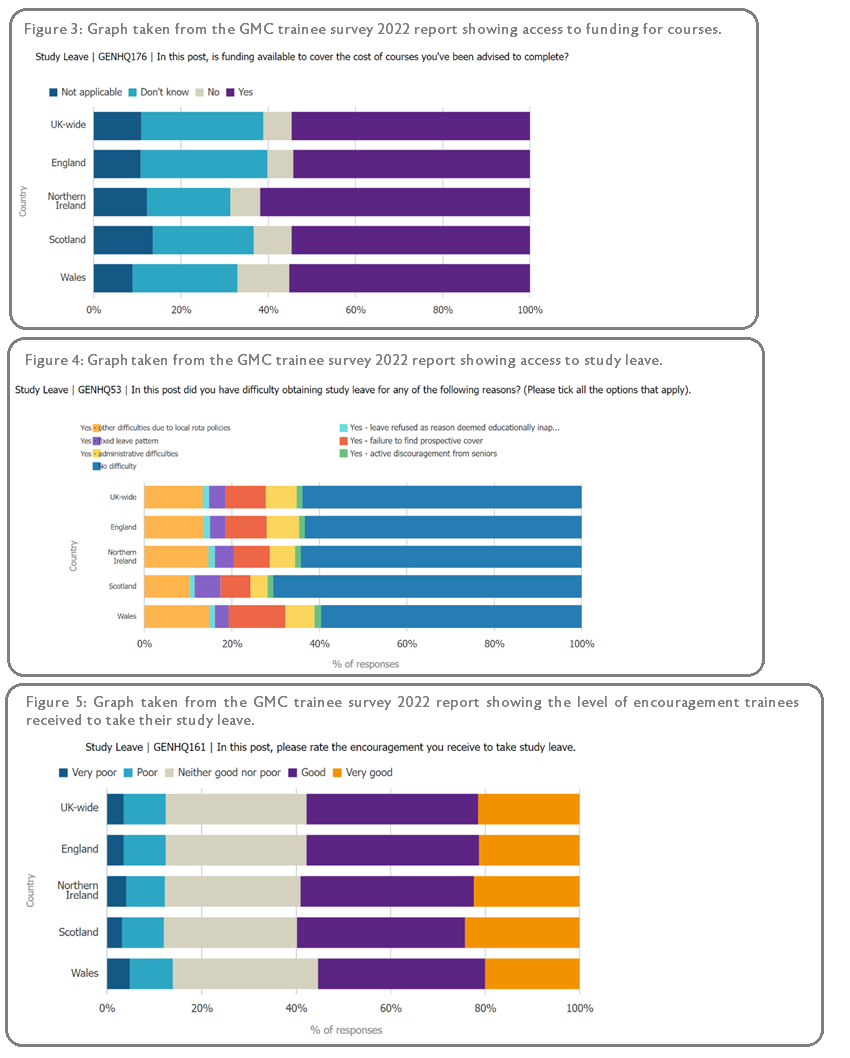Results of a survey carried out among attendees of the BGS Trainees' Weekend 2022, reflecting on issues relating to study leave and the wider picture for Trainees.

In 2022 the BGS Trainees' Weekend was moved from a face-to-face event, with the option of online attendance, to a fully online weekend. The registrations for face-to-face attendance were low and as a result the difficult decision had been made to cancel in the person aspect.
Study leave

On a scale of 0-10, 0 being not at all easy and 10 being extremely easy, when people were asked how easy it was for them to get study leave at that moment in time they answered on average a 7.4. Then when asked how easy it would be to obtain study leave in the coming 3-6 months the average answer was a 6.5.
Regarding the topic of available study budgets people generally felt that there was adequate access to funding. From a scale of 0-10 with 0 being completely disagree and 10 being completely agree, on average the answer 6.3 was given when asked whether there was sufficient budget to attend meetings in person. However over half of people were not actually sure how much their budget was (Figure 2).
The wider picture


